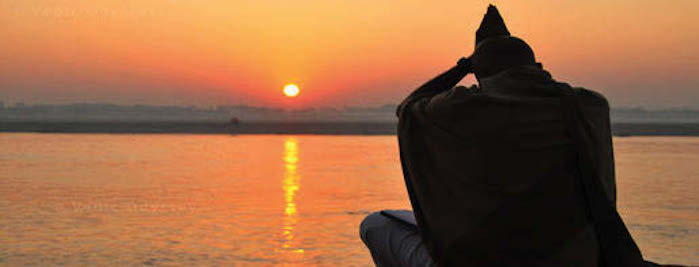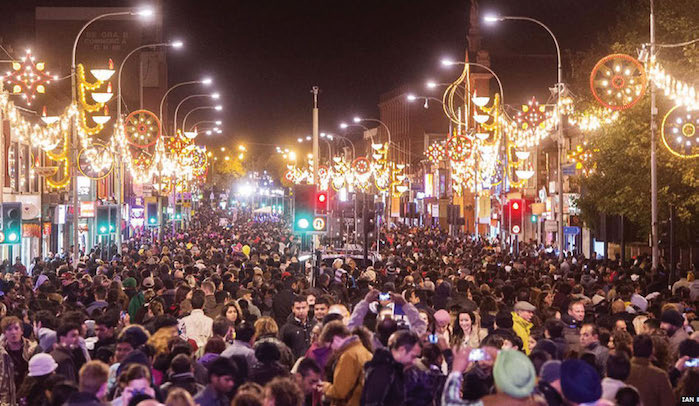
THE Epic relates to the ancient traditions of two powerful races, the Kosalas and the Videhas, who lived in Northern India between the twelfth and tenth centuries before Christ. The names Kosala and Videha in the singular number indicate the kingdoms,–Oudh and North Behar,–and in the plural number they mean the ancient races which inhabited those two countries.
According to the Epic, Dasa-ratha king of the Kosalas had four sons, the eldest of whom was Rama the hero of the poem. And Janak king of the Videhas had a daughter named Sita, who was miraculously born of a field furrow, and who is the heroine of the Epic. Janak ordained a severe test for the hand of his daughter, and many a prince and warrior came and went away disappointed. Rama succeeded, and won Sita.
The story of Rama’s winning his bride, and of the marriage of his three brothers with the sister and cousins of Sita, forms the subject of this Book. The portions translated in this Book form Section vi., Sections lxvii. to Ixix., Section lxxiii., and Section lxxvii. of Book i. of the original text.
AYODRYA, THE RIGHTEOUS CITY
Rich in royal worth and valour, rich in
holy Vedic lore,
Dasa-ratha ruled his empire in the happy
days of yore,
Loved of men in fair Ayodhya, sprung of
ancient Solar Race,
Royal rishi in his duty, saintly rishi in his
grace,
Great as INDRA in his prowess, bounteous
as KUVERA kind,
Dauntless deeds subdued his foemen, lofty
faith subdued his mind!
Like the ancient monarch Manu, father of
the human race,
Dasa-ratha ruled his people with a father’s
loving grace,
Truth and Justice swayed each action and
each baser motive quelled
People’s Love and Monarch’s Duty every
thought and deed impelled,
And his town like INDRA’S city,–tower and
dome and turret brave–
Rose in proud and peerless beauty on
Sarayu’s limpid wave!
Peaceful lived the righteous people, rich in
wealth in merit high,
Envy dwelt not in their bosoms and their
accents shaped no lie,
Fathers with their happy households
owned their cattle, corn, and gold,
Galling penury and famine in Ayodhya had
no hold,
Neighbours lived in mutual kindness
helpful with their ample wealth,
None who begged the wasted refuse, none
who lived by fraud and stealth!
And they wore the gem and earring,
wreath and fragrant sandal paste,
And their arms were decked with
bracelets, and their necks with nishkas
graced,
Cheat and braggart and deceiver lived not
in the ancient town,
Proud despiser of the lowly wore not
insults in their frown,
Poorer fed not on the richer, hireling friend
upon the great,
None with low and lying accents did upon
the proud man wait
Men to plighted vows were faithful, faithful
was each loving wife,
Impure thought and wandering fancy
stained not holy wedded life,
Robed in gold and graceful garments, fair
in form and fair in face,
Winsome were Ayodhya’s daughters, rich
in wit and woman’s grace
Twice-born men were free from passion,
lust of gold and impure greed,
Faithful to their Rites and Scriptures,
truthful in their word and deed,
Altar blazed in every mansion, from each
home was bounty given,
‘Stooped no man to fulsome falsehood,
questioned none the will of Heaven.
Kshatras bowed to holy Brahmans, Vaisyas
to the Kshatras bowed
Toiling Sudras lived by labour, of their
honest duty proud,
To the Gods and to the Fathers, to each
guest in virtue trained,
Rites were done with true devotion as by
holy writ ordained,
Pure each caste in due observance,
stainless was each ancient rite,
And the nation thrived and prospered by
its old and matchless might,
And each man in truth abiding lived a long
and peaceful life,
With his sons and with his grandsons, with
his loved and honoured wife.
Thus was ruled the ancient city by her
monarch true and bold,
As the earth was ruled by Mann in the
misty days of old,
Troops who never turned in battle, fierce
as fire and strong and brave,
Guarded well her lofty ramparts as the
lions guard the cave.
Steeds like INDRA’S in their swiftness
came from far Kamboja’s land,
From Vanaya and Vahlika and from
Sindhu’s rock-bound strand,
Elephants of mighty stature from the
Vindhya mountains came,
Or from deep and darksome forests round
Himalay’s peaks of fame,
Matchless in their mighty prowess,
peerless in their wondrous speed,
Nobler than the noble tuskers sprung from
high celestial breed.
Thus Ayodhya, “virgin city,”–faithful to her
haughty name,–
Ruled by righteous Dasa-ratha won a
world-embracing fame,
Strong-barred gates and lofty arches, tower
and dome and turret high
Decked the vast and peopled city fair as
mansions of the sky.
Queens of proud and peerless beauty born
of houses rich in fame,
Loved of royal Dasa-ratha to his happy
mansion came,
Queen Kausalya blessed with virtue true
and righteous Rama bore,
Queen Kaikeyi young and beauteous bore
him Bharat rich in lore,
Queen Simitra bore the bright twins,
Lakshman and Satruglina bold,
Four brave princes served their father in
the happy days of old!
MITHILA, AND THE BREAKING OF BOW
Janak monarch of Videha spake his
memage near and far,
He shall win my peerless Sita who shall
bend my bow of war,
Suitors came from farthest regions,
warlike princes known to fame,
Vainly strove to wield the weapon, left
Videha in their shame.
Viswa-mitra royal rishi, Rama true and
Lakshman bold,
Came to fair Mithila’s city from Ayodhya
famed of old,
Spake in pride the royal rishi: “Monarch of
Videha’s throne,
Grant, the wondrous bow of RUDRA be to
princely Rama shown.”
Janak spake his royal mandate to his lords
and warriors bold:
“Bring ye forth the bow of RUDRA decked
in garlands and in gold,”
And his peers and proud retainers waiting
on the monarch’s call,
Brought the great and goodly weapon from
the city’s inner hall.
Stalwart men of ample stature pulled the
mighty iron car
In which rested all-inviolate Janak’s
dreaded bow of war,
And where midst assembled monarchs sat
Videha’s godlike king,
With a mighty toil and effort did the eightwheeled
chariot bring.
“This the weapon of Videha,” proudly thus
the peers begun,





330942 375175Youll discover some fascinating points in time in this post but I do not know if I see all of them center to heart. Theres some validity but I will take hold opinion until I appear into it further. Wonderful post , thanks and we want significantly more! Added to FeedBurner too 620245